Found 31 results for Ruth
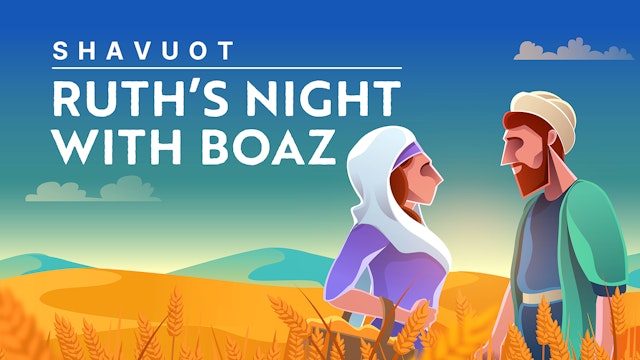
The Story of Boaz and Ruth in the Bible
↳ part 1 of 4 of the series "Did Ruth Seduce Boaz?"
How are we meant to understand the meaning of Ruth and Boaz's scandalous love story? The Book of Ruth is a charming tale, with its likeable protagonist and themes of devotion and kindness woven throughout — and who isn’t moved by that powerful scene, early in the book, when Ruth tells her mother-in-law: “Your people are my people, and your God is my God”? But then… you get to the part with the love story between Ruth and Boaz. Ruth and Boaz's story starts off nicely, slowly… but did you catch that whole weird scene in Chapter 3? During the climax of the story, per Naomi’s instruction, Ruth anoints herself in oils, gets all dressed up, and goes down to Boaz in the middle of the night after he's been drinking. What are we supposed to learn from that? What did your kids think about that part? When you read the story of Ruth and Boaz in shul on Shavuot, did all of those ‘seduction’ themes enhance the spirituality of your Shavuot experience? This love story between Ruth and Boaz can seem peculiar at best and uncomfortable at worst. So why do we read it on Shavuot, and why is it in God’s Holy Bible? Did Ruth seduce Boaz? What's the Bible lesson behind that part of Ruth and Boaz's story? So it turns out that there’s a good reason that we read this story on Shavuot, there’s a good reason that Ruth and Boaz and their whole affair are included in the Bible — and no, we wouldn’t have been better off if the censors had clipped out Chapter 3 altogether (God forbid!). If they had, we’d have been much worse off, because we’d be completely missing one of the central lessons of the Book of Ruth - a lesson that can only be glimpsed when you read this story alongside the other stories of seduction in Ruth’s family. “Which stories of seduction?” you are wondering? You only knew about Chapter 3? In this course, originally created for Shavuot, Rabbi Fohrman revisits the incidences of scandal that have plagued Ruth’s family for generations — and what he finds are, in fact, deep lessons about human relationships, about kindness, and about the ways that we can choose to manipulate one another or truly help one another. It’s a story that redeems the love shared between Ruth and Boaz. Discover other great Shavuot videos at Aleph Beta, including ‘The Hidden Structure of the Ten Commandments’, ‘The Origin Of Shavuot’, and ‘Our Guide To Celebrating Shavuot’.
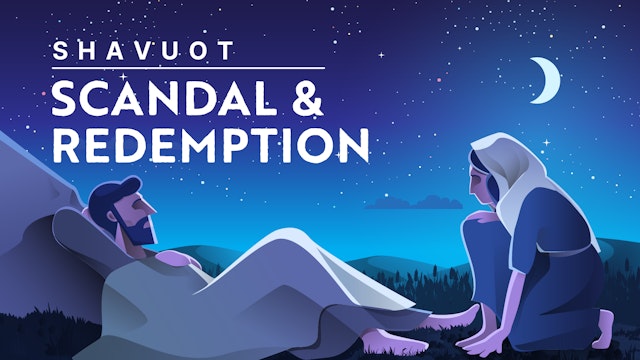
Book Of Ruth I
↳ part 6 of 7 of the series "How Ruth Resolved a Centuries-Long Scandal"
Book of Ruth - Part 1

Book Of Ruth II
↳ part 7 of 7 of the series "How Ruth Resolved a Centuries-Long Scandal"
Book of Ruth - Part 2
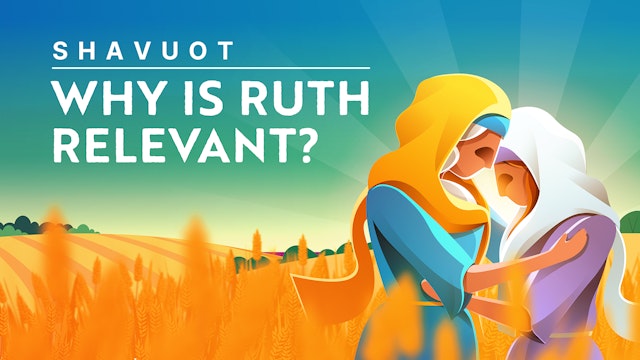
The Book of Ruth Explained
↳ part 1 of 5 of the series "Why Ruth’s Story Captures Shavuot Perfectly"
On the surface, the book of Ruth seems like an unusual choice to read on Shavuot. After all, Shavuot is the day the Jewish people recall standing at Mount Sinai and receiving the Torah from God. It’s an awesome occasion, commemorating our spiritual pinnacle as a people! What does a 'day in the life of Beit Lechem' have anything to do with that? Rabbi Fohrman takes a closer look at Megillat Ruth and begins to uncover the ways in which Ruth's story is much deeper than it appears. Discover other great Shavuot videos at Aleph Beta, including ‘The Hidden Structure of the Ten Commandments’, ‘The Scandalous Backstory of Boaz & Ruth’, and ‘Why Do We Celebrate Shavuot Laws’.
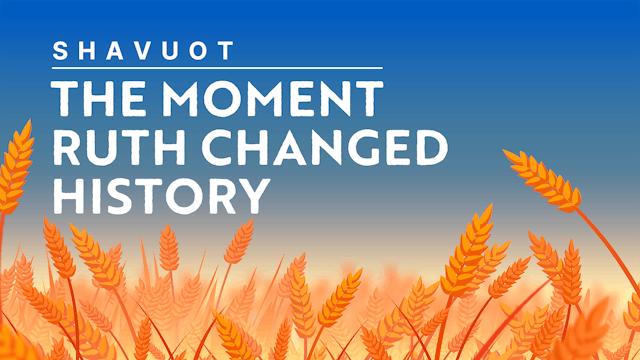
Hidden Dimensions of the Book of Ruth
Rabbi Fohrman takes a closer look at the Book of Ruth, uncovering new ways in which Ruth's story is much deeper than it appears.

Kindness and Recognition Converge
↳ part 4 of 4 of the series "Did Ruth Seduce Boaz?"
Rabbi Fohrman brings the focus back to the book of Ruth, showing how elements of both the Lot and his daughter story and the Judah and Tamar story can be seen in the narrative, helping us to understand that through the two elements of these two stories, we can truly understand Ruth.
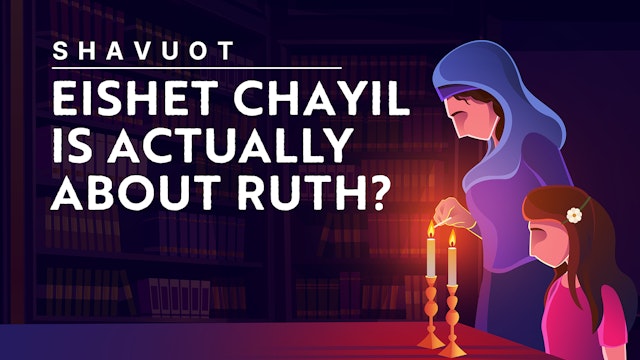
Did King Solomon Pen A Hidden Commentary On Ruth?
Eishet Chayil is the ode to feminine gifts, written by King Solomon in the final chapter of Proverbs, and sung every week, at the Friday night Shabbat table. For generations, many of us have been singing this song every Friday night at our Shabbat table, singing to the woman of the house and extolling her praises. Rabbi Fohrman recorded this live audio in Alon Shvut, Israel, in which he aims to understand the essence of what a "woman of valor" really means. For indeed, the very notion is odd. Valor is often thought of as a masculine virtue – signifying bravery, on the battlefront, or otherwise. And yet, King Solomon uses this phrase when describing what he calls the most important of feminine gifts. Why? Rabbi Fohrman argues that Solomon, in the song of Eishet Chayil, hides a theory of a vision of unique feminine power and strength.

The Unlived Legacy
↳ part 3 of 5 of the series "Why Ruth’s Story Captures Shavuot Perfectly"
Rabbi Fohrman explores the two journeys that we see Abraham making in Genesis. The first is the external journey to the Promised Land. The second is the internal journey that Abraham takes as he tries to fulfill his dream to carry on his brother's legacy.

Kindness and Broken Kindness
↳ part 2 of 4 of the series "Did Ruth Seduce Boaz?"
Rabbi Fohrman delves into the narrative of Lot and his daughters, showing that the kindness of Abraham was distorted in the broken kindness of Lot, resulting in incest between Lot and his daughters and hinting at the connection to Ruth, a descendant of Lot and his daughters who acted against their backdrop.

Brotherly Love
↳ part 5 of 5 of the series "Why Ruth’s Story Captures Shavuot Perfectly"
Rabbi Fohrman connects the early stories in Genesis to Megillat Ruth and explains how Ruth's actions are a culmination of the dream that Abraham had so many years before. By delving deeper into the Megilla we are able to discern what the Jewish people's mission statement really is.

Lot And His Daughters
↳ part 2 of 7 of the series "How Ruth Resolved a Centuries-Long Scandal"
This continues from the first part "Lest it Come to Scandal," exploring the genesis of Jewish kingship from Lot and his daughters to Judah and Tamar and the Book of Ruth.